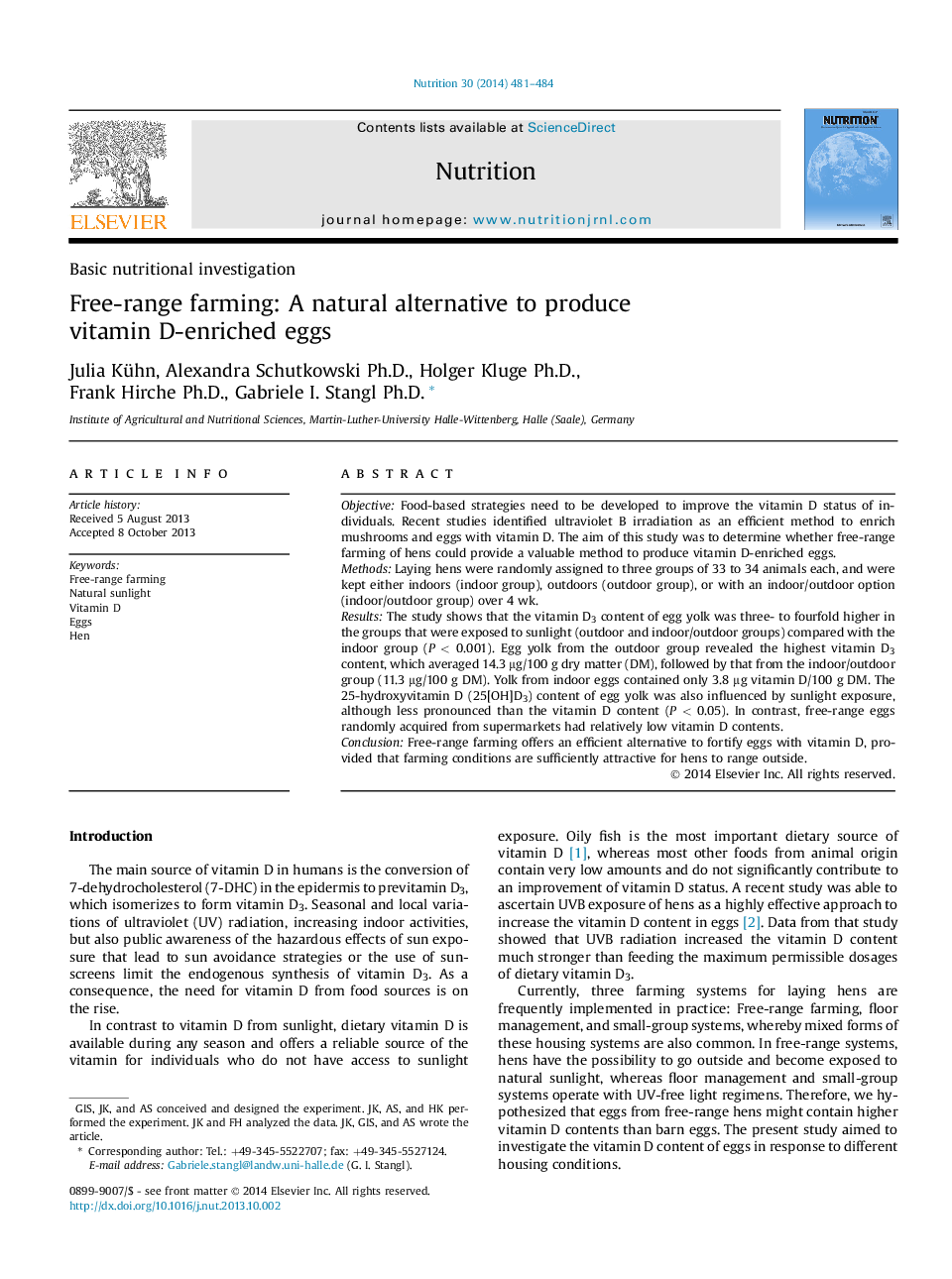| Article ID | Journal | Published Year | Pages | File Type |
|---|---|---|---|---|
| 3276376 | Nutrition | 2014 | 4 Pages |
ObjectiveFood-based strategies need to be developed to improve the vitamin D status of individuals. Recent studies identified ultraviolet B irradiation as an efficient method to enrich mushrooms and eggs with vitamin D. The aim of this study was to determine whether free-range farming of hens could provide a valuable method to produce vitamin D-enriched eggs.MethodsLaying hens were randomly assigned to three groups of 33 to 34 animals each, and were kept either indoors (indoor group), outdoors (outdoor group), or with an indoor/outdoor option (indoor/outdoor group) over 4 wk.ResultsThe study shows that the vitamin D3 content of egg yolk was three- to fourfold higher in the groups that were exposed to sunlight (outdoor and indoor/outdoor groups) compared with the indoor group (P < 0.001). Egg yolk from the outdoor group revealed the highest vitamin D3 content, which averaged 14.3 μg/100 g dry matter (DM), followed by that from the indoor/outdoor group (11.3 μg/100 g DM). Yolk from indoor eggs contained only 3.8 μg vitamin D/100 g DM. The 25-hydroxyvitamin D (25[OH]D3) content of egg yolk was also influenced by sunlight exposure, although less pronounced than the vitamin D content (P < 0.05). In contrast, free-range eggs randomly acquired from supermarkets had relatively low vitamin D contents.ConclusionFree-range farming offers an efficient alternative to fortify eggs with vitamin D, provided that farming conditions are sufficiently attractive for hens to range outside.
